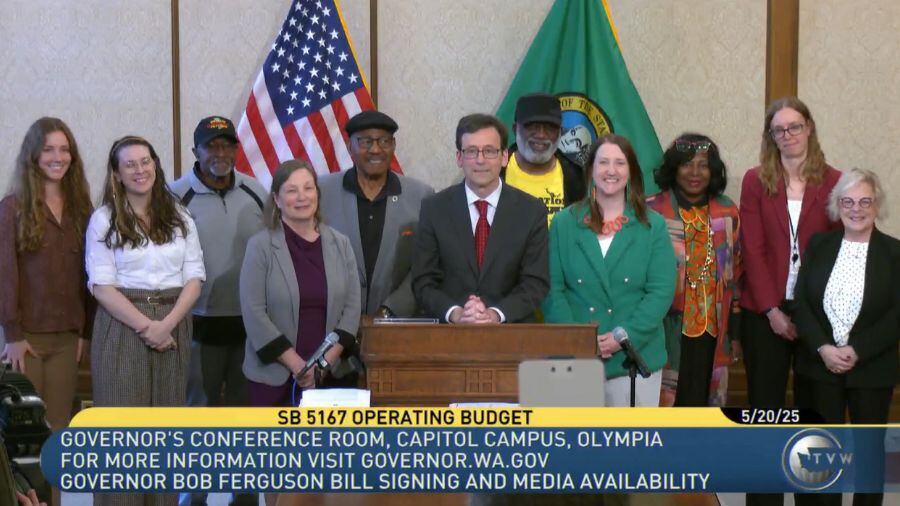OLYMPIA, Wash. — This story was originally published on MyNorthwest.com
Washington Governor Bob Ferguson has signed one of the most hotly debated pieces of legislation—the state’s operating budget.
After months of political tug-of-war, lawmakers agreed on SB 5167, a massive $77.9 billion operating budget for the next two years.
“I so do appreciate everyone who has worked so hard on this budget,” Ferguson said at the bill signing.
Senate Republicans broke down the operating budget, via a news release, which includes $4.5 billion in new spending and $12.5 billion in state and local taxes. Also, 42% of the budget will be spent on K-12 education.
“On his first day in office, Governor Ferguson spoke of fiscal responsibility, yet today he’s supporting the largest tax increase in state history,” Senate Republican Leader John Braun of Centralia, stated via a news release. “That’s disappointing. The majority Democrats who don’t believe government can ever have enough money were unhappy with him back then; they must be elated now.”
In a previous interview with TVW, Ferguson said he was “optimistic” about avoiding a special session.
Ferguson signs capital, transportation budgets
Ferguson also signed SSB 5195, the state’s capital budget, coming in at $7.3 billion.
SSB 516, the state’s transportation budget, was also signed into law, which, according to Senate Republicans, includes $903.4 million to highway preservation projects and $655.95 million to highway maintenance projects.
“We so appreciate everyone who made this possible,” Ferguson said at the bill signing in reference to the transportation budget.
Ferguson’s early budget demands
From beginning of his administration, Ferguson hammered home some pretty specific demands: Save billions, stick to real revenue numbers (not the typical automatic 4.5% tax revenue increase every year), boost affordable housing, pour more money into K-12 education, and throw millions of dollars to cities and counties for local law enforcement. By his own account, the legislature mostly listened.
“The budgets adopted by the legislature accomplish those goals,” Ferguson said, sounding cautiously optimistic.
In the final hours of the 105-day session, the operating budget came down to a straight party-line vote in the Senate, with all Democrats in support and all Republicans voting against it. A slightly different story in the House, where six Democrats defected and joined all Republicans in voting no.
During a press conference held by House and Senate Democratic leaders, several expressed optimism about the governor’s acceptance of their budget and tax package.
“Our conversations have been very positive in the last week. And I think if you watched his statements over time, you can see that he had a significant influence over the budget as it ultimately passed both chambers,” Senate Majority Leader Jamie Pedersen (D-Seattle) said. “As a lawyer, I would expect him to want to look through the bills carefully.”
Republicans repeatedly said their budget proposal would have spent $2 billion less, raised no taxes, and cut no services.
Contributing: Matt Markovich, KIRO Newsradio
©2025 Cox Media Group






